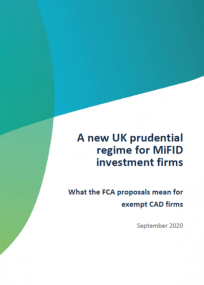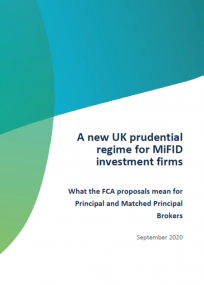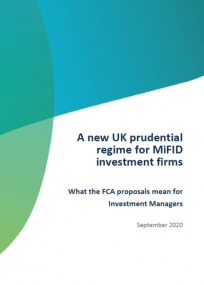Across European Union (EU) member states, there is a wide variation in how investment firms are prudentially supervised. In the UK, for example, there are three prudential sourcebooks for investment firms- BIPRU, IFPRU and IPRU(INV). Plus, of course, the prudential regime in the Capital Requirement Regulations and Directive (CRR/CRD IV) imposes methodologies, but these are not very well suited to the business of investment firms and the risks they face.
The European Commission has therefore put in place a revised prudential framework - the Investment Firms Regulation (IFR) and the Investment Firm Directive (IFD) - to address the aforementioned issues. The text of the new regulations is now included in the EU’s Official Journal with the rules set to apply from 26 June 2021. To ensure a smooth transition for firms, there are some transitional provisions that will allow a gradual build-up of capital resources to the new required levels.
The UK will be implementing the new regime. In other words, this is unaffected by Brexit. The Financial Conduct Authority (FCA) published a Discussion Paper on 23 June 2020 indicating that their approach to implementing the new regime will be very similar to that of the EU. Final rules are expected to be published in Q1 2021.
This means that a new prudential framework will apply to Principal Brokers and Matched Principal Brokers, to MiFID Authorised Investment Managers and to firms categorised as Exempt CAD Firms for prudential purposes.
To help you understand the background to the changes, what they mean for your firm and what changes need to be made in preparation for the changes we have an explanatory guide.
Please download the guide that applies to your firm
Exempt CAD firms
Principal and Matched Principal Brokers
Investment Managers
Related resources
All resources
Talking Regulation: PISCES and the rise of secondaries: unlocking liquidity in private markets

Managing Conflicts of Interest

Unlocking private markets for the public: The next frontier in UK capital markets

Smaller asset managers and alternatives business model review: FCA findings



